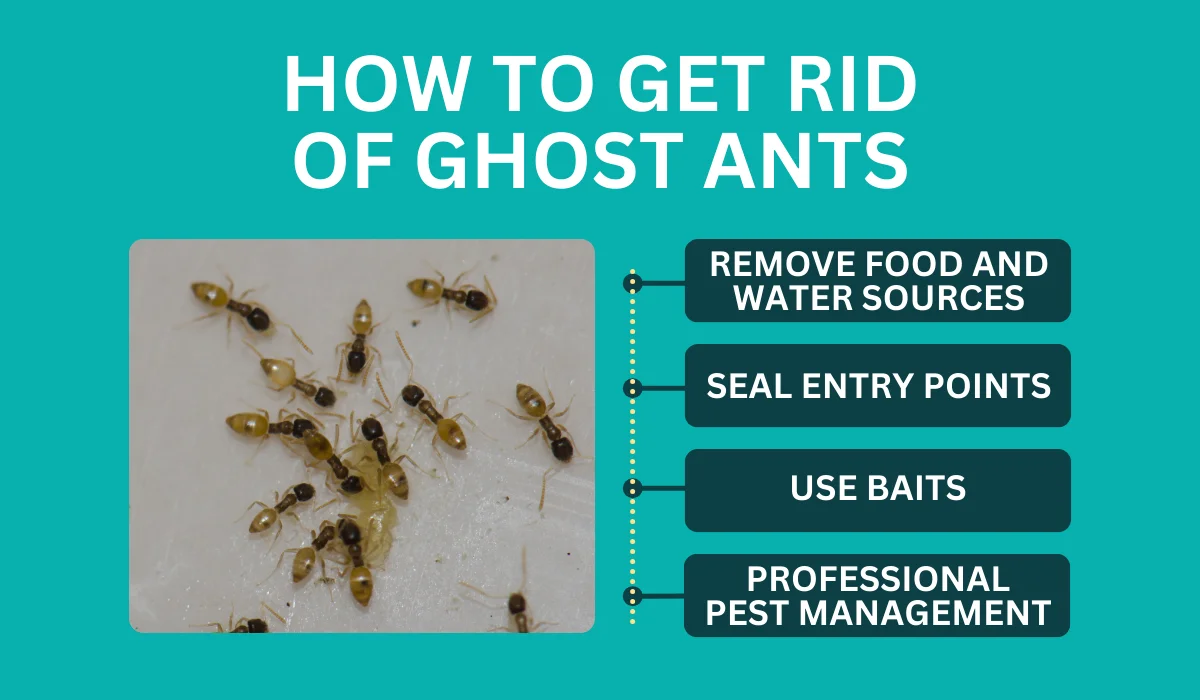Do Ghost Ants Bite? Here's What to Know
If you’ve ever noticed tiny, translucent ants scurrying across your counters, you’re not alone. Ghost ants are a common pest, especially in warm climates like Florida. While their name might sound ominous, one of the most frequent questions homeowners ask is, “Do ghost ants bite?”
The short answer is no, ghost ants do not bite humans. However, understanding their behavior and how to handle an infestation is crucial for keeping your home pest-free. In this article, we’ll explore why they don’t bite.
Key Takeaways
- Ghost ants don’t bite or sting—they’re more interested in finding sweet food than in bothering humans.
- Look for trails near food, debris at entry points, and nests in humid places to spot ghost ants.
- Getting rid of ghost ants means sealing cracks, cleaning up food, and using baits to target colonies.
- Professional pest control can handle hidden nests and help keep ghost ants from coming back.
Do Ghost Ants Pose a Danger?
Ghost ants are tropical species often found in Florida, Texas, and even Hawaii. They are highly adaptable and can thrive in various climates, though they prefer humid environments.
Unlike more aggressive species like fire ants or pharaoh ants, ghost ants or sugar ants do not bite or sting. Here’s why:
- No stingers: Ghost ants are not equipped with venom or stingers to defend themselves.
- Tiny mandibles: Their jaws are too small to cause harm to humans.
- Focus on food: These ants are more concerned with scavenging for sweet substances like honeydew, secreted by aphids, than engaging in aggressive behavior.
While ghost ants don’t bite, their presence can still cause frustration as they contaminate surfaces and invade pantries.
How to Tell If You Have Ghost Ants
If you’re dealing with these ant species, you might notice these signs of a ghost ant infestation:
- Worker ant trails near water food sources.
- Small piles of debris around entry points, like cracks in walls or windows.
- Ants nesting in humid areas like greenhouses or bathrooms.
One key sign is their attraction to sweet and greasy foods, which makes kitchens a hotspot for infestations.
How to Get Rid of Ghost Ants

Addressing a ghost ant infestation requires a combination of prevention and professional treatment. Here’s how:
1. Remove Food and Water Sources
Ghost ants are always on the hunt for food, so keeping your home clean is essential. Wipe down countertops, sweep up crumbs, and store all food in sealed containers. Don’t forget to fix leaky pipes or faucets to cut off their water supply.
2. Seal Entry Points
These small ants can sneak through the smallest cracks. Check around windows, doors, and baseboards for gaps, and seal them with caulk. Outdoors, inspect areas like mulch, flowerpots, and your home’s foundation for possible entry points.
3. Use Baits
Sweet baits are the most effective way to deal with ghost ants. Place baits along their pheromone trails and near nesting sites. The worker ants will carry the bait back to the old and new colonies, killing the ants at the source.
4. Professional Pest Management
If DIY solutions fail, it’s time to call in pest control experts. Professionals can target hidden nests in wall voids or apply specialized treatments to ensure the ants are completely eradicated.
How to Prevent Future Infestations
Preventing ghost ants involves maintaining a clean and well-sealed home. Regularly inspect your property for signs of ants and address them promptly. Here are some tips:
- Replace mulch with crushed stone to reduce nesting opportunities.
- Keep gutters clean to prevent moisture buildup.
- Schedule regular visits from a professional pest control service.
Why Choose Professional Pest Control?
While ghost ants may not bite, their presence can disrupt your daily life.
At Native Pest Management, our team specializes in safe and effective treatments for household pests like ghost ants. We identify and treat ghost ant colonies, seal entry points, and provide ongoing prevention strategies.
For a free quote, call us today or visit our website to learn more about how we can help you manage your ant problem.
